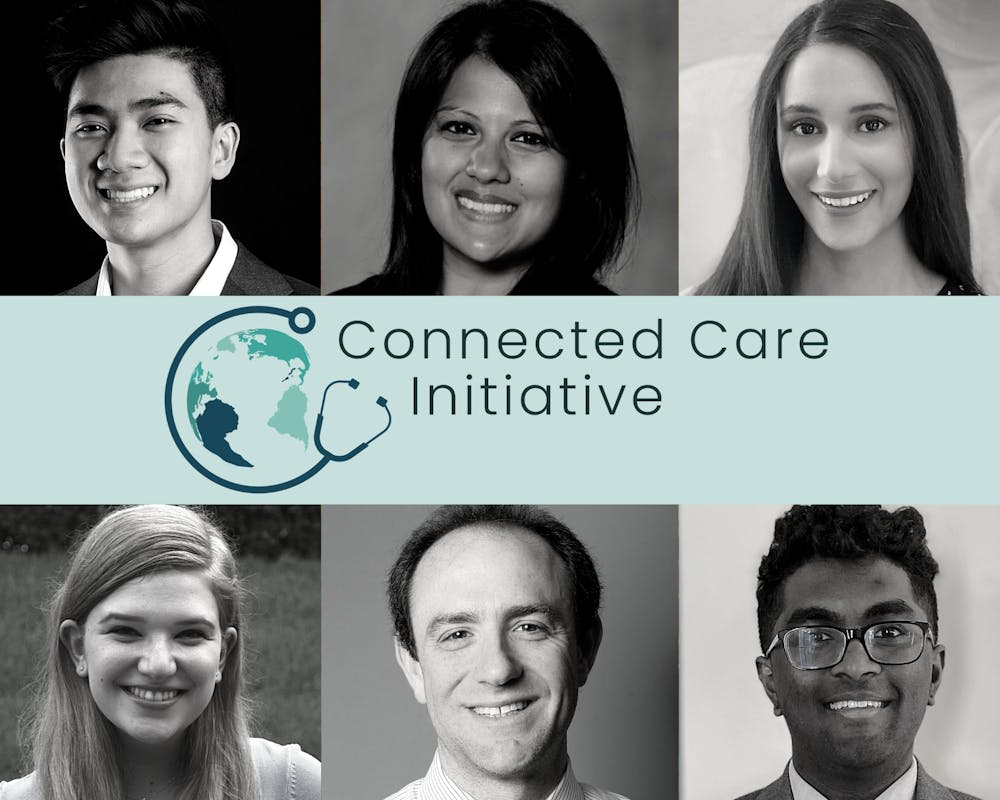
Two Penn sophomores have launched a telehealth program in a Bangladeshi refugee camp in collaboration with Penn Medicine.
College and Wharton sophomores Henry Le and Ananya Dewan started the Connected Care Initiative (CCI), which aims to bring medical care to vulnerable refugee populations through telehealth. The initiative is currently focusing on recruiting physician volunteers, providing telecommunications and diagnostic technologies, and creating telehealth infrastructures to benefit the medical care of refugees.
Telehealth is a budding medical practice defined by the use of communications technology to conduct remote medical care, often to patients who don’t have access to specialty physicians.
The CCI is currently in its pilot phase, providing technology and remote access to specialists to a Bangladeshi clinic located inside the Kutupalong refugee camp. Kutupalong is the largest refugee camp in the world and is mainly populated by the Rohingya people.
The Rohingya people are a Muslim minority from the country of Myanmar. In Buddhist-majority Myanmar, they have seen discrimination and threats of genocide, leading them to seek refuge in Bangladesh.
The project is currently increasing the availability of telecommunications technology and diagnostic equipment available on the ground at refugee clinics. By providing equipment, such as laptops and WiFi access, and creating proper telehealth infrastructures, the project can help maximize the amount of patient information available to physicians, Le said. Physicians and workers on the ground at these clinics can send this information to specialists operating remotely, giving the refugees access to proper care.
Both Le and Dewan said that the project is driven by their passion for using medicine to protect vulnerable populations.
“Working to improve the access to health care as well as the quality of care delivery is something I’m really passionate about, especially when it comes to these places like Kutupalong,” Dewan said.
Le said the project was catalyzed by the COVID-19 pandemic. Over the summer, the pandemic forced many into remote work, which contributed to the rise of telemedicine.
“We saw borders and barriers being broken down, and wanted to introduce telemedicine to these vulnerable populations,” Le said.
Dewan and Le both emphasized that CCI is a group effort. They work closely with two other students: Engineering sophomore Suvas Kota works on the technological front developing telehealth software, while Laura Allen, a junior at George Washington University, aids the initiative’s sustainability.
Le and Dewan created CCI under the mentorship of Penn Medicine faculty members and doctors Jesse Raiten and Nahreen Ahmed.
Raiten, who has a background in global health, helped the students connect and recruit physicians and assisted in navigating the project through the "red tape," or the political or bureaucratic hurdles, of working with refugee camps.
“Anytime you involve other countries, particularly countries that aren’t politically stable or where there is a lot of poverty, a lot of volatility is injected into the situation. That leads to red tape when you’re trying to do a project from abroad,” Raiten said.
Ahmed, CCI’s other mentor, who has worked closely with the medical clinic in the camp, helped get the students the connections with the clinic necessary to launch the program.
Though the program is in its pilot phase, Le and Dewan hope to see it expand in the future.
“The core goal of our initiative is to find a way to standardize telemedicine for many of the clinics and refugee camps around the world and fill the inadequacies present in each and every refugee camp. I think we’re united by the mission to make health care truly universal,” Le said.
The Daily Pennsylvanian is an independent, student-run newspaper. Please consider making a donation to support the coverage that shapes the University. Your generosity ensures a future of strong journalism at Penn.
Donate




